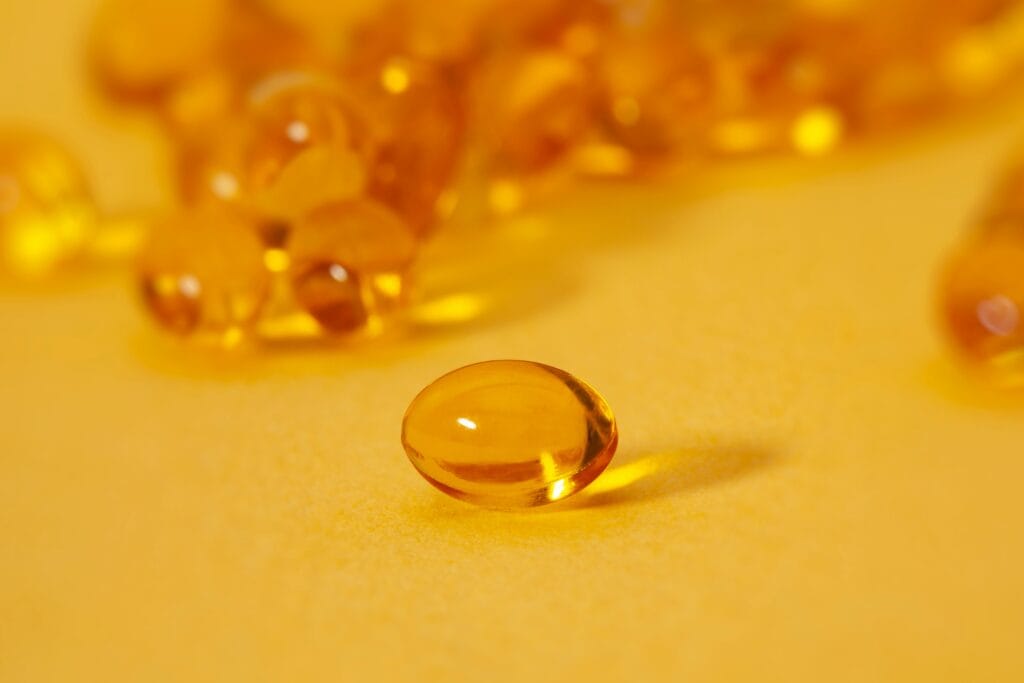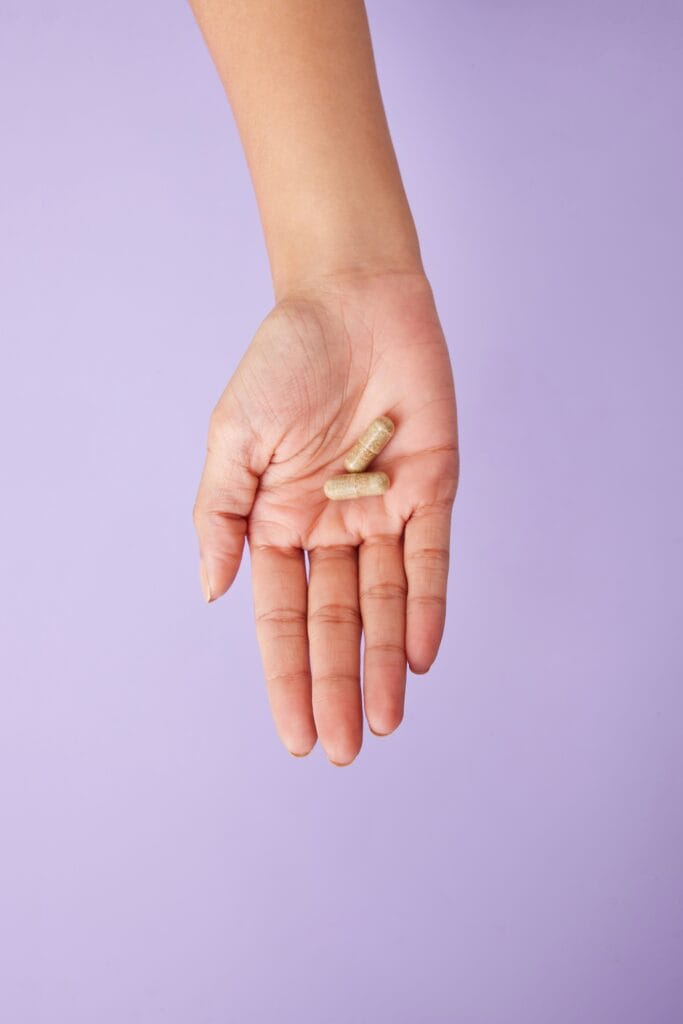*This article contains affiliate links*
If you’re struggling to make sense of perimenopause supplements, you’re not alone. This guide breaks down what really works for energy, mood, sleep, skin and hormone balance. From magnesium and vitamin D to adaptogenic herbs and collagen, discover which supplements genuinely support women through perimenopause — and which ones might be a waste of money. Written for busy women navigating this confusing stage of life, this article offers clear, evidence-based advice in plain English.
Perimenopause — that long, confusing transition leading up to menopause — can feel like your body is changing the rules without telling you. One minute you’re fine; the next, you’re hot, anxious, wide awake at 3 a.m., or wondering why your jeans suddenly don’t fit.

Then, when you start looking for help, it’s a minefield. Every brand claims to have the supplement that will balance your hormones, boost your mood and help you feel “like yourself again”, but which ones actually work, and how do you know what’s worth your money?
Let’s break it down into what science, doctors and real women say helps most — and what to watch out for.
Understanding Perimenopause
Perimenopause can start as early as your late 30s or early 40s and typically lasts several years. During this time, hormone levels — especially oestrogen and progesterone — fluctuate wildly.
These changes can cause a long list of symptoms, including:
- Hot flushes and night sweats
- Fatigue
- Brain fog
- Mood swings or anxiety
- Irregular periods
- Weight gain (especially around the middle)
- Sleep problems
- Low libido
No two women experience it the same way, which is why finding the right support often means a bit of trial and error. Don’t be fooled into thinking the list above are the only symptoms – here is a comprehensive A-Z list of perimenopause symptoms.
Why Supplements Can Help
While lifestyle factors such as sleep, stress management, and diet play a big role, targeted supplements can ease symptoms and support hormonal balance. They’re not a quick fix, but they can be an important piece of the puzzle — especially when chosen wisely. However, if you are struggling do speak to your GP about HRT. Some women find the thought of HRT scary but for most women you can view it in the same way you view a supplement – you are simply topping up your levels.

Best Supplements for Perimenopause
1. Magnesium
If you only add one thing, make it magnesium. It’s often called the calming mineral for good reason — it supports sleep, reduces anxiety, and can ease muscle tension and headaches.
Look for magnesium glycinate or magnesium citrate, which are gentle and well-absorbed forms. Many women find taking it at night helps with deeper sleep and fewer restless legs.
2. Vitamin B Complex
B vitamins support energy, mood regulation and hormone metabolism — all crucial during perimenopause. They also help your body manage stress more effectively.
A high-quality B complex can support brain function and reduce fatigue, especially if you’re juggling work, parenting and everything else midlife throws your way.
3. Omega-3 Fatty Acids
Omega-3s (found in fish oil or algae-based supplements) can help reduce inflammation, support brain health, and even improve mood.
They’re especially beneficial if you struggle with low mood or “menopausal brain fog.” Choose a supplement with a good ratio of EPA and DHA — and if you don’t eat oily fish twice a week, this one’s worth adding.
4. Vitamin D
In the UK, most of us are deficient, especially in autumn and winter. Vitamin D supports bone strength, immune function, and mood — all areas that take a hit during perimenopause.
Public Health England recommends a daily supplement of 10 micrograms (400 IU), but many women benefit from slightly higher doses (always check with your GP before increasing).
5. Adaptogenic Herbs (Ashwagandha, Rhodiola, Maca)
These plant-based supplements help your body adapt to stress and support hormone balance naturally.
- Ashwagandha: can reduce anxiety and improve sleep quality.
- Rhodiola: boosts energy and mental clarity.
- Maca root: supports libido and stamina, and some women find it helps even out mood swings.
If you feel burned out, wired or simply “off balance,” adaptogens can be a gentle addition to your routine.
6. Evening Primrose Oil or Starflower Oil
These oils are rich in gamma-linolenic acid (GLA), which can help with breast tenderness, dry skin and mood changes linked to hormonal fluctuations.
They’re particularly popular for easing premenstrual symptoms that often intensify during perimenopause.
7. Probiotics
Gut health and hormone health are deeply connected. A diverse gut microbiome helps your body metabolise oestrogen efficiently, which can reduce bloating and mood changes.
A broad-spectrum probiotic or fermented foods like kefir, kimchi and sauerkraut can make a noticeable difference.
8. Collagen Peptides
Collagen levels decline with age and hormonal shifts, leading to changes in skin, hair, joints and muscle tone. A daily collagen supplement can support skin elasticity, reduce dryness and aid recovery after exercise.
Supplements to Be Cautious With

Some blends marketed for menopause combine herbs and hormones in ways that don’t suit everyone. For example:
- Black cohosh can help hot flushes but isn’t suitable for women with certain liver conditions.
- Soy isoflavones may mimic oestrogen, which can be helpful for some but problematic for others.
Always check interactions with medication and seek advice if you have a history of breast cancer, thyroid issues or liver concerns.
How to Choose Quality Supplements
It’s easy to get lost in the noise. When comparing brands:
- Look for third-party testing or certifications.
- Avoid unnecessary fillers or artificial sweeteners.
- Check for active ingredient amounts rather than marketing claims.
- Remember that price doesn’t always equal quality.
The Bottom Line
Perimenopause isn’t something to “get through” — it’s a major biological transition that deserves proper support. Supplements can make a real difference, but they work best alongside sleep, balanced nutrition, movement and stress management.
If you’re feeling lost in the minefield, start with the basics: magnesium, vitamin D, and omega-3. Then build from there, tracking how your body responds.
Most importantly — don’t go it alone. Talk to your GP, consider a women’s health specialist, and lean on trusted, evidence-based information. The right combination of nutrients, lifestyle and self-care can help you feel balanced, strong and more like you again.

